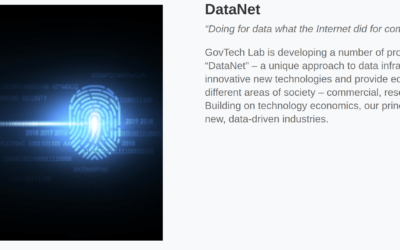Further Reading and Resources:
Artificial Intelligence (AI)
AI provides computers with the ability to make decisions and learn without explicit programming. AI technologies power intelligent personal assistants, such as Apple Siri, Amazon Alexa, ‘Robo’ advisors and autonomous vehicles.
There are two main branches:
Knowledge-Based Systems (KBS)—are computer programs that reason, and knowledge is explicitly represented as ontologies or rules rather than implicitly via code. KBS can be subdivided into:
- Rule-based systems—is one whose knowledge base contains the domain knowledge coded in the form of event-condition-action, such as using IF-THEN or IF-THEN-ELSE rules.
- Case-based reasoning—a form of the so-called expert systems that base decision-making on prior case experience, instead of on a pre-defined rule set.
Machine Learning—is a type of AI program with the ability to learn without explicit programming, and can change when exposed to new data. Subdivisions include:
- Supervised learning—is the task of inferring a function from labelled training data, where training data consist of a set of training examples.
- Unsupervised learning—is the task of inferring a function to describe the hidden structure from unlabeled data.
Other AI technologies important for government-citizen interaction are natural language processing (NLP) and sentiment analysis:
Natural Language Understanding—the application of computational techniques to the analysis and synthesis of natural language and speech.
Sentiment Analysis—the process of computationally identifying and categorising opinions expressed in a piece of text.
These technologies are important for applications such as monitoring public opinion, policy and fraud detection.
Related Papers and Publications

Algorithmic Government - The Computer Journal
Paper #02
Paper #03
Paper #03

Next GovTechLab Event
Latest News
GovTech Lab Seminar: DataNet and the Future of National Data Infrastructures @UCL (26th Nov. 9.30-Noon)
GovTech Lab Seminar: DataNet and the Future of National Data Infrastructure 26 November, 2019 University College London 9.30 - 12 Noon https://govtechlab.org/datanet/ DataNet - Doing for Data what the Internet did for Communications DataNet represents a new approach...
read moreGovTech Lab identified as leading Innovator
GovTech Lab is proud to be mentioned, in an article by Public (a leading voice in digital government transformation), as part of initiatives based at University College London. The article identifies UCL as one of the five leading GovTech innovator universities....
read moreData shouldn’t be allowed to speak for itself
Dr Vaughn Tan is an assistant professor at University College London’s School of Management. He received a PhD in Organizational Behaviour from Harvard University in 2013. Previously, he was an infantry signals logistician in the Republic of Singapore Army, then...
read more



